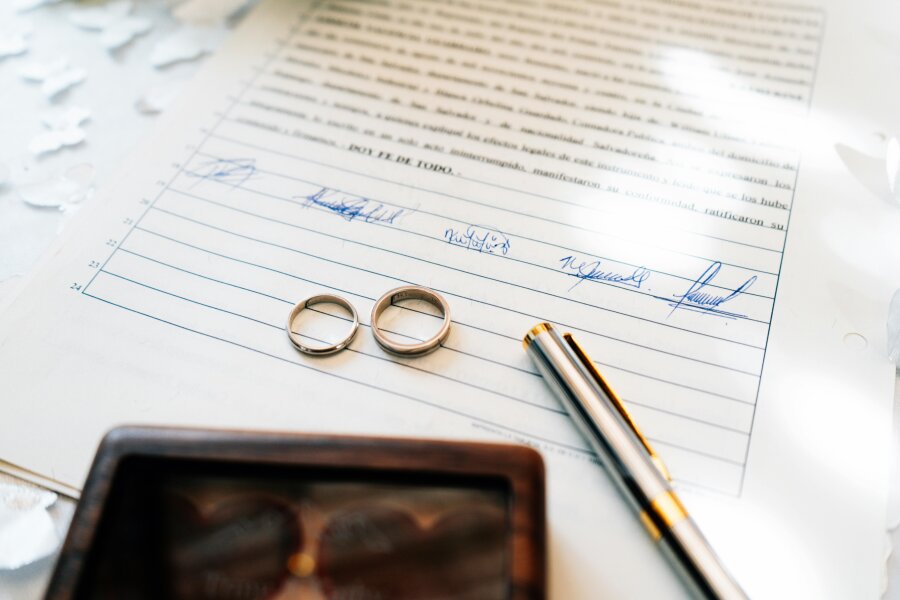Best Contract Lawyers in New York City
Share your needs with us, get contacted by law firms.
Free. Takes 2 min.
List of the best lawyers in New York City, United States
United States Contract Legal Questions answered by Lawyers
Browse our 1 legal question about Contract in United States and read the lawyer answers, or ask your own questions for free.
- What's the fee for reviewing a Home purchase contract.
- How much is your fee for looking over a contract on the house I am about to purchase.
-
Lawyer answer by US Legal Group 美国法律集团律师事务所
Hi. Thank you for reaching out to us regarding your upcoming property purchase. As a combined China & U.S. law firm, we specialize in real estate transactions and are well-equipped to review your contract.To provide you with a precise quote,...
Read full answer
1. About Contract Law in New York City, United States
In New York City, contract law is primarily governed by New York State law and enforced through the state and federal court system. Formation and interpretation follow established requirements: offer, acceptance, consideration, mutual assent, and a lawful purpose. NYC-specific practice often involves commercial leases, construction agreements, and service contracts tied to Manhattan, Brooklyn, Queens, the Bronx, and Staten Island markets. For goods and many commercial transactions, the Uniform Commercial Code (UCC) shapes expectations about formation, performance, and remedies.
New York applies a blend of common law principles and statutory rules to contracts. Written contracts are generally preferred in NYC because they reduce ambiguity and provide clear evidence of the parties’ obligations. When disputes arise, courts look to the contract language first, then to applicable statutes and governing law. Digital contracting and electronic signatures are increasingly recognized as valid under state law, which affects how NYC businesses draft and execute agreements.
Understanding the basics helps you spot when you may need legal counsel. An experienced attorney can assess risk, interpret boilerplate terms, and help you enforce or defend contract rights in negotiations, mediations, or court proceedings in New York courts.
2. Why You May Need a Lawyer
Note the following concrete, real-world scenarios in New York City where seeking contract legal help is prudent. Each reflects common NYC contexts and risks that competent counsel can help you manage.
- Commercial lease negotiations for a Manhattan storefront: Landlords often insert complex renewal, default, and improvement provisions. A contract attorney can negotiate rent steps, operating expenses, and repair obligations to protect your business’s cash flow.
- Construction contracts for a NYC project: Change orders, lien rights, and payment milestones require precise drafting. A lawyer can ensure mechanics lien protections and timely, doc-driven payment procedures to avoid cost overruns.
- Employee and independent contractor agreements: NYC employers frequently use at-will language with non compete or non solicitation terms. A counsel can tailor restrictions to be enforceable under New York law and minimize risk of wage or misclassification claims.
- Real estate purchase agreements for a condo or co-op: NYC closings involve tight deadlines, disclosure requirements, and contingencies. An attorney can review title commitments, financing conditions, and contingency language to reduce post-closing risk.
- Intellectual property licensing in media and entertainment: NYC-based studios and artists rely on licensing terms for rights, royalties, and territory. A contract attorney can draft or revise license scopes, audit rights, and termination provisions.
- Disputes with NYC service providers or vendors: If a contract is ambiguous or breached, a lawyer helps determine breach, damages, and possible settlement strategies before litigation or arbitration.
3. Local Laws Overview
General Obligations Law - Statute of Frauds (GOL) for written contracts
New York requires certain contracts to be in writing to be enforceable, including agreements that cannot be performed within one year and the sale of goods above a threshold. The applicable provisions are found in General Obligations Law sections 5-701 through 5-703. Enforceability hinges on writing that clearly outlines the essential terms and parties. Violations can render a contract unenforceable in court.
Tip for NYC residents: if your agreement concerns real property, a mortgage, or long term obligations, expect a writing requirement. Our city contracts often involve substantial performance across multiple years or large sums, making a signed document essential.
Uniform Commercial Code - Article 2 (UCC 2) for contracts involving goods
The UCC governs the sale of goods in New York, including contract formation, performance, and breach remedies. Article 2 addresses key issues such as price, delivery, risk of loss, and warranties. UCC rules often prevail when a contract chiefly concerns tangible goods or mixed transactions with a significant goods component.
In practice, many NYC business contracts allocate risk through warranties, acceptance criteria, and remedies. A lawyer helps ensure compliance with UCC requirements and aligns terms with New York case law and market practice in the city.
Civil Practice Law and Rules - Statute of Limitations for contracts (CPLR 213)
New York imposes a statute of limitations on contract actions. For most written and oral contracts, the period is six years from the breach or accrual date. Tolling rules may apply in specific circumstances, such as when a party is under a disability or when the breach is discovered later. Missing the deadline can bar a lawsuit even if the claim is valid.
If you expect a contract dispute in NYC, start the clock early and consult a contract attorney to assess how the statute of limitations affects your case and any tolling opportunities.
Source note: New York law relies on the Statute of Frauds, the UCC for goods, and CPLR timing rules to shape contract enforceability and remedies.
Representative references: General Obligations Law - Statute of Frauds; Uniform Commercial Code - Article 2; CPLR - Statute of Limitations.
Recent trends in NYC include the growing use of digital contracting and electronic signatures, which interact with traditional writing requirements. Businesses should ensure that electronic formats memorialize the essential terms and signatures to maintain enforceability under NY law. For more details on governing law references, consult an NYC contract attorney before finalizing critical documents.
4. Frequently Asked Questions
What is a contract in New York City?
A contract is a voluntary agreement between two or more parties with an offer, acceptance, consideration, and a lawful purpose. New York courts enforce contracts that meet these elements and comply with applicable statutes.
How do I know if a contract is legally enforceable in NYC?
Enforceability depends on writing for certain terms, lack of fraud or duress, proper formation under NY law, and compliance with Statute of Frauds and timing rules for lawsuits.
What is the Statute of Frauds in New York for contracts?
In New York, the Statute of Frauds requires certain contracts to be in writing, such as long term or real property agreements and some lease or sale arrangements.
How long do I have to sue for a contract breach in New York?
The general deadline is six years from the breach for written and oral contracts. Some situations may toll or shorten the period depending on facts.
Do I need to hire a lawyer to review a contract in NYC?
While you can review contracts yourself, a NYC contract attorney can identify hidden risks, negotiable terms, and compliance issues that affect enforceability and cost.
How much does a New York contract attorney typically charge?
Fee structures vary widely by complexity and firm size. Expect hourly rates ranging from moderate to high in NYC, with flat fees possible for document review or straightforward negotiations.
What is an addendum to a contract in New York?
An addendum adds terms or clarifications to an existing contract. It must be executed with the same formalities as the original contract to be enforceable.
What is arbitration in NYC contract disputes?
Arbitration is a private dispute resolution mechanism. NYC contracts often include arbitration clauses that require submitting claims to an arbitrator instead of court.
Can I write my own contract in New York and be enforceable?
You can draft your own contract, but to maximize enforceability you should tailor the terms to the law, include essential provisions, and have the document reviewed by an attorney.
Should I sign a contract without legal review in NYC?
Signing without review carries risk, especially for complex deals. An attorney can explain risks, suggest edits, and help you avoid costly mistakes.
Do I need witnesses or notarization for a contract in NYC?
Most contracts do not require witnesses or notarization for validity, but some types (such as real estate settlements) may benefit from or require additional formalities.
Is electronic signing valid for NYC contracts?
Electronic signatures are generally recognized under NY law when proper authentication and intent are present. Ensure the contract meets statutory requirements for electronic forms.
5. Additional Resources
- New York State Unified Court System - nycourts.gov Official site for the New York court system with information about contract litigation, statutes of limitations, and dispute resolution.
- Uniform Law Commission - uniformlaws.org Official resource for the Uniform Commercial Code and model contract statutes adopted by New York and other states.
- New York State Senate - nysenate.gov Official repository of New York statutes including General Obligations Law, CPLR, and related contract provisions.
6. Next Steps
- Clarify your contract objective and gather all relevant documents, such as the current draft, emails, and prior versions. Set a timeline for review and negotiation.
- Identify at least three NYC-licensed contract attorneys or firms with relevant experience in your industry. Use lawyer directories on nycourts.gov or nybar.org as starting points.
- Check licensing and disciplinary history through the New York State Office of Court Administration or the attorney directory on nycourts.gov. Verify active status and any ongoing disciplinary actions.
- Schedule initial consultations with at least two attorneys. Bring your draft, goals, and a summary of issues. Ask about approach, timeline, and fee structure.
- Prepare questions about risk, review scope, and potential settlement or litigation strategies. Compare projected costs, not just hourly rates, and understand deliverables.
- Decide on counsel and execute a written engagement letter. Establish a clear timeline for document redline rounds and a final negotiation deadline.
- Proceed with contract review, edits, and negotiations. Maintain organized version control and keep all communications in writing for evidentiary purposes.
Lawzana helps you find the best lawyers and law firms in New York City through a curated and pre-screened list of qualified legal professionals. Our platform offers rankings and detailed profiles of attorneys and law firms, allowing you to compare based on practice areas, including Contract, experience, and client feedback.
Each profile includes a description of the firm's areas of practice, client reviews, team members and partners, year of establishment, spoken languages, office locations, contact information, social media presence, and any published articles or resources. Most firms on our platform speak English and are experienced in both local and international legal matters.
Get a quote from top-rated law firms in New York City, United States — quickly, securely, and without unnecessary hassle.
Disclaimer:
The information provided on this page is for general informational purposes only and does not constitute legal advice. While we strive to ensure the accuracy and relevance of the content, legal information may change over time, and interpretations of the law can vary. You should always consult with a qualified legal professional for advice specific to your situation.
We disclaim all liability for actions taken or not taken based on the content of this page. If you believe any information is incorrect or outdated, please contact us, and we will review and update it where appropriate.

















